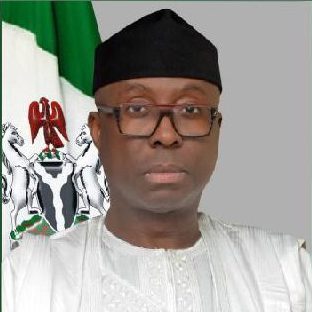Ololade Omosan-Agie
Minister of Industry, Trade and Investment, Otunba Adeniyi Adebayo said on Thursday that the only way to sustain the growth of the nation’s economy is to broaden and deepen the financial system.
In his address at the 2021 national Workshop of the Chartered Institute of Stockbrokers in Abuja, the Minister noted the importance of the financial sector in enhancing efficient economic growth.
According to him, “As the economy grows, the financial services sector needs to keep pace with changing industry demands, especially in terms of assessing the prospects for risk and return. Sustainable growth of the economy needs to be underpinned by a broadening and deepening of the financial system, capable of serving the needs of all parts of the economy.
” Economies that have sustained long-term growth have experienced enormous structural change, as they have shifted from being predominantly rural and agricultural to a more urban, manufacturing-and-service-based structure.
“This was certainly the history of many industrialized countries, as the countries economies diversified, their financial systems grew in depth and breadth.”
He stressed that with the nation presently experiencing economic growth, there is the need for the development of a healthy financial sector.
He added that emphasis “is being placed on reforms that strengthen the rights of borrowers and lenders, strengthen the credit rating system, lower the costs of obtaining credit and streamline dispute resolution”.
He said the implementation of the Africa Continental Free Trade Area Agreement (AfCFTA) will enhance Africa’s capacity to unlock growth and create jobs by building the nation’s industrial capacity, enlarging her productivity and becoming competitive globally.
According to him, “Nigeria has the largest economy and population in Africa with more than $500 billion in GDP and a population of 200 million.”
“This market size allows manufacturers to increase capacity and expand into other African countries. This will enable investors to benefit not only from the Nigerian market but from other countries on the continent as well.
“To put this in context, Nigeria contributes an estimated 76% of total trading volume in the ECOWAS region. This is made possible because of the ECOWAS treaty which provides for the free movement of people and goods throughout 15 West African countries. The AfCFTA grants access to 54 countries with a population of around 1.3 billion and a market value of about $3.4 trillion.
“The Federal Government of Nigeria through the Ministry of Industry, Trade and Investment recognises the importance of attracting and retaining patient investment in our economy. The Ministry has continually engaged relevant MDAs to implement policies that will help to achieve this goal,” he said.
He listed some of his ministry’s trade and investment promotion policies to include: Establishment of Presidential Enabling Business Environment Council (PEBEC); Companies and Allied Matters Act (CAMA) 2020; Finance Act 2020; Reform of Nigeria’s International Investment Agreements (IIAS); Book of States; One Stop Investment Center (OSIC) Lab; and the development of an online investment guide.
 The Commerce Africa African Reneissance
The Commerce Africa African Reneissance


